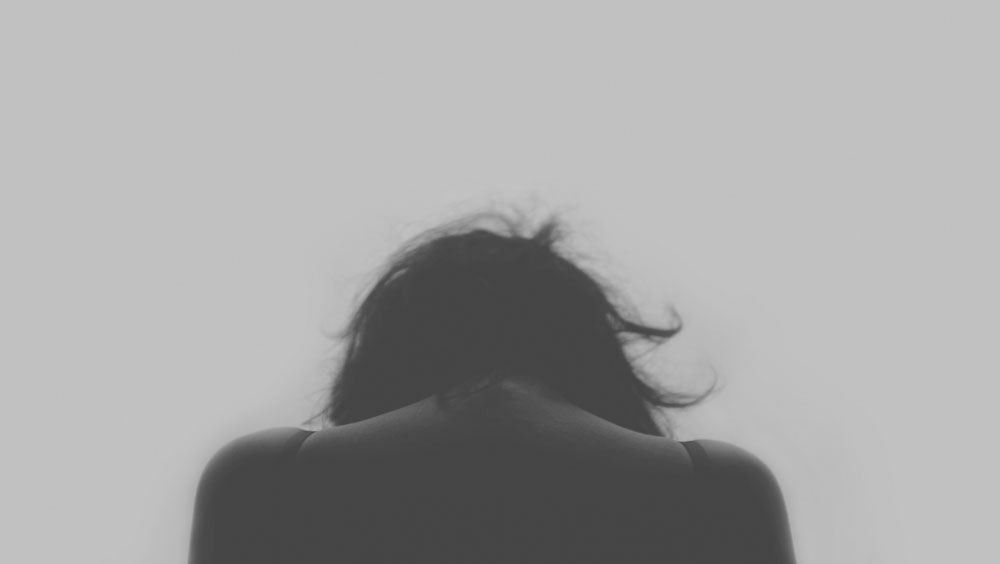I’ve been suffering from chronic and debilitating migraines since I was 17. I still remember the first one I had. Despite feeling like I had been run over by a Mack Truck, and like I was stuck on a life raft in a storm at the same time, I was determined to go to work. I desperately needed the money and I wasn’t the type of person who called in sick. I never got sick.
So I slid my aching body out of bed and stumbled to the bathroom. I remember clinging to the shower curtain as I lifted my shaking legs into the bathtub. I then vomited all down myself. It was in this moment I knew this wasn’t any ‘normal’ headache, it was something much worse. I cleaned myself up, crawled back into bed and tried to make myself sleep. I dozed in and out for most of the day until my brother became worried and came in to check on me.
I sent him on a mission to find all the painkillers he could. I tried a heavy cocktail of painkillers (we checked with a pharmacist first) but nothing took the pain away, the pills only dulled it to a more manageable level and made my empty stomach churn: nausea, cold sweats, black spots, and blurry vision remained. I stayed like this for three days. I got so dehydrated from vomiting and diarrhoea that my lips cracked. It was so bad I couldn’t go to work. I had to call in sick to both my jobs. Later, I realised I wasn’t having one continuous headache but a bunch of little headaches known as a cluster migraine.
Once I got better, I wrote off this experience as a one-time thing, much like you would if you had food poisoning. But when my migraines returned a month later, I grew concerned. I went to the doctor and explained my situation but they didn’t seem too worried and told me to watch my diet, exercise and drink more water. So I went on enduring my migraines for eight years with little knowledge of what was happening to me and the causes (Doctors on average only have four hours of undergraduate training on headache disorders so most migraines are undiagnosed).
That was until I started waking up with migraines – which isn’t normal – and the doctors made me have my eyes tested, have a CT scan, and stop taking the pill due to the increased risk of blood clots. Thankfully, all the tests came back clear, but finally, I had my doctor’s attention. It seemed since my initial visit to the doctor, migraines were now considered a serious health issue (The World Health Organisation (WHO) who has classified them as a temporary disability). Finally, I was prescribed a medication specifically for migraines before being sent on my way, again.
I have periods that are migraine free and others where it feels like I have one most days. Learning to accept my temporary disability has been hard. When I’m in the middle of a cluster I get really depressed and find it hard to get out of bed, let alone write copy for my clients. I also struggle to accept that in many ways, having migraines are out of my control. I beat myself up about the piece of chocolate I ate three days ago or the gym session I missed because I was working. There are many things that cause migraines from hormones to stress to muscular issues to food. For me, there is no one trigger.
I used to try and hide that I suffered from migraines because I didn’t want people to think I was using them as an excuse to be lazy, miss deadlines and be antisocial. Despite over one in ten people suffering from migraines, there is still a lot stigma around them. For one, people think that it’s just a bad headache and you should have a couple of Panadol and push through it. I’ve had people tell me to “just cut out sugar” or “go to bed early.” If it was that simple, trust me, I’d be doing it already.
People have even suggested that I use the computer for only a few hours a day, which although is ideal, isn’t very practical for someone who runs an online communications business and lives in our digitally connected world. Like with many unknown or understood disabilities, people love to weigh-in and tell me how to live my life. But unless you are a migraine sufferer, it’s hard to understand the toll it takes on people’s everyday life. It affects your mental health, relationships, social life and employment.
Over the last few years, I’ve started to accept that my migraines are here to stay. I’ve put in place strategies that help reduce the intensity – like seeing a personal trainer twice a week to help with my posture and movement and taking regular breaks during the day. But if I’m honest, it’s not the pain and discomfort that I can’t accept – you quickly learn to function slightly impaired. What I’m still struggling to accept is that my migraines aren’t a sign of weakness; that I’m not doing something wrong or I need to be fixed. Everyone has some health issue – hay fever, bad knees or food allergies – and it just so happens that migraines are mine.
Featured image from Google.





